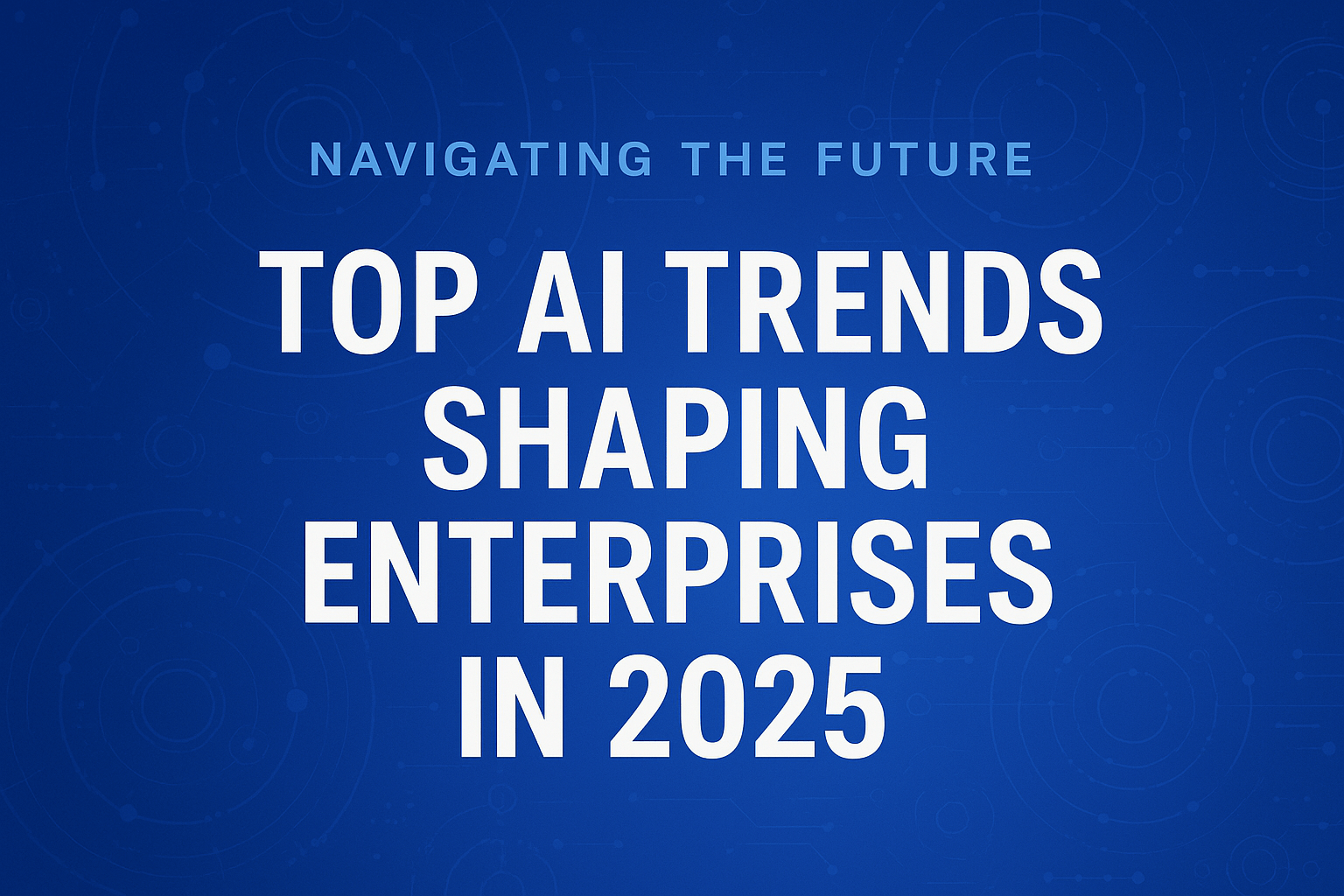Introduction
Artificial Intelligence (AI) continues to redefine the business landscape, offering unprecedented opportunities for innovation and efficiency. As we progress through 2025, several AI trends have emerged, poised to significantly impact enterprise operations. Understanding and adapting to these trends is crucial for businesses aiming to maintain a competitive edge.
1. Generative AI: Beyond Chatbots
Generative AI has evolved beyond simple chatbot functionalities. Enterprises are now leveraging this technology for content creation, product design, and more. For instance, tools like OpenAI’s Sora and ElevenLabs’ AI voice generator exemplify the shift towards multimodal AI applications, handling diverse data types such as audio, video, and images. Informa TechTarget
Platforms like Venture Builder AI empower startups and advisors to harness generative AI for tasks like pitch deck creation and market research, streamlining business development processes.
2. The Rise of AI Agents
AI agents capable of autonomous decision-making are becoming integral to enterprise operations. These agents handle tasks ranging from scheduling to data analysis, enhancing productivity and efficiency. Salesforce’s Agentforce is a prime example, designed to autonomously manage workflows for business users. Informa TechTarget
By integrating AI agents, businesses can automate routine tasks, allowing human resources to focus on strategic initiatives.
3. Emphasis on AI Ethics and Regulation
With the rapid advancement of AI technologies, ethical considerations and regulatory compliance have become paramount. The European Union’s AI Act, for instance, aims to establish comprehensive guidelines for AI usage, emphasizing transparency and accountability. Informa TechTarget
Enterprises must stay informed about evolving regulations to ensure responsible AI deployment and avoid potential legal pitfalls.
4. AI in Education and Workforce Development
Educational institutions are revamping curricula to prepare students for an AI-driven future. The Wharton School at the University of Pennsylvania, for example, has introduced new programs focusing on AI, balancing technical training with ethical and economic considerations. Business Insider
Such initiatives ensure that the future workforce is equipped with the necessary skills to navigate and leverage AI technologies effectively.
5. AI-Powered Business Transformation
Businesses are increasingly integrating AI into their operations to enhance efficiency and innovation. From predictive analytics in marketing to AI-driven customer service solutions, the applications are vast. Retailers, for instance, are utilizing AI for inventory management and personalized shopping experiences. Toxigon+1Exploding Topics+1Exploding Topics
Platforms like Venture Builder AI offer tools that assist startups in building robust business models and strategies, leveraging AI for growth and scalability.
6. Multimodal AI Models
The development of multimodal AI models capable of processing various data types is revolutionizing industries. These models enable more comprehensive analyses and solutions, facilitating advancements in fields like healthcare, where AI assists in diagnostics and treatment planning. Informa TechTarget
By embracing multimodal AI, enterprises can unlock new levels of insight and innovation.
7. AI in Healthcare and Science
AI’s role in healthcare and scientific research is expanding, offering tools for disease prediction, personalized medicine, and climate modeling. Researchers are utilizing AI to build tools that predict weather patterns and estimate carbon emissions, contributing to sustainability efforts. Coursera
These applications demonstrate AI’s potential to address complex global challenges.
8. AI-Driven Climate Solutions
AI technologies are being employed to develop solutions for climate change mitigation. From optimizing energy consumption in data centers to modeling environmental impacts, AI contributes to sustainability initiatives. The International Energy Agency reports that existing AI technologies could cut emissions by about 5% in 2035. Axios
Enterprises adopting AI-driven climate solutions not only contribute to environmental conservation but also benefit from operational efficiencies.
Conclusion
As AI continues to evolve, staying abreast of emerging trends is essential for enterprises aiming to thrive in a competitive landscape. From generative AI to ethical considerations, the integration of these technologies offers opportunities for innovation and growth. Platforms like Venture Builder AI provide the tools and resources necessary for businesses to navigate this dynamic environment effectively.

